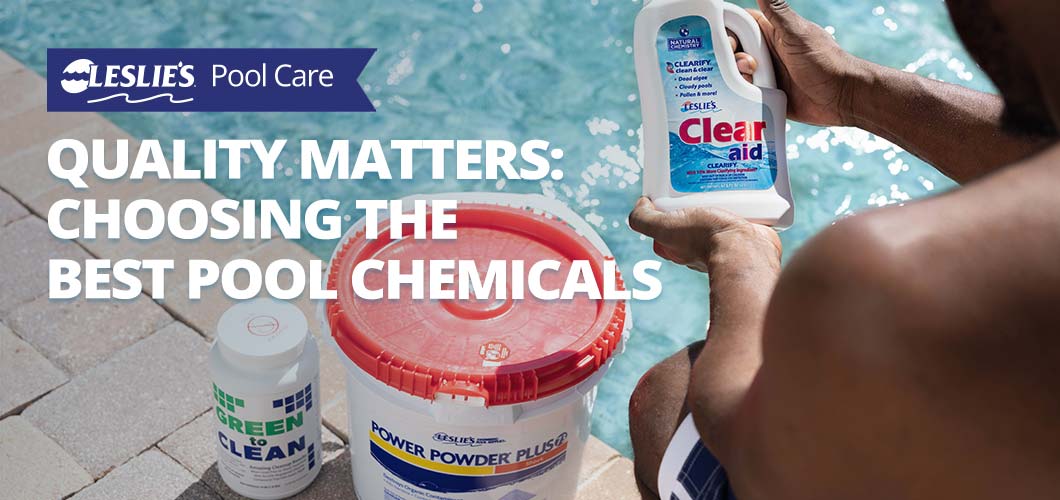
Quality Matters: Choosing the Best Pool Chemicals
Swimming pools are a great way to beat the heat and enjoy the outdoors. To ensure a safe and healthy swimming experience, you need balanced, sanitized pool water. How do you accomplish that? Simple! Just test the water at least once per week, and only use the best chemicals in your pool. Of course, there are other aspects of a healthy pool care routine. These include cleaning the pool and running your circulation and filtration system for enough hours each day. But using high-quality chemicals can make it much easier to maintain a well-balanced, thoroughly sanitized swimming pool.
Keep these things in mind:

The purest chemical ingredients yield the best results, allowing you to balance, sanitize, and treat your pool water with confidence.
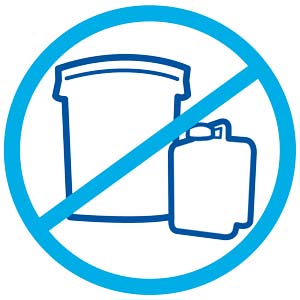
Fillers and additives in cheaper products and household alternatives can negatively impact water quality and pool health.
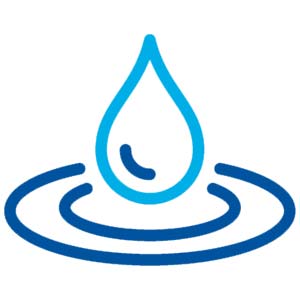
Using quality chemicals with a higher product efficacy will help you treat the water faster and get the job done right the first time.
The key to maintaining a pristine swimming pool lies in the quality of the chemicals used to treat the water. While it may be tempting to opt for cheaper household alternatives or subpar chemicals, compromising on quality can lead to a host of major pool problems — both in the short and long term. What may save you a little money now can ultimately cost you big time. The most common scenario is having to purchase extra chemicals to correct problems caused by inferior pool chemicals. And that doesn't even include the costs of pool and equipment repairs caused by water imbalances and leftover filler residues. It’s best to only use the highest quality, purest pool chemicals in your water to ensure effective water treatment right from the start. That way, you can avoid these costly problems.
The Importance of Pure Ingredients
The best pool chemicals offer the highest ingredient purity, which is vital for effective water treatments. Impure or low-grade chemicals may contain unnecessary fillers, additives, impurities, or contaminants. These chemicals often fail to adequately balance or sanitize the pool. And, in some cases, they can also introduce harmful compounds into the water. At best, you’ll end up with a cloudy pool and a quickly climbing level of Total Dissolved Solids (TDS). At worst, you’ll end up with a major algae bloom, severe stains and scale, or poorly balanced water that aggressively corrodes pool surfaces and equipment.
The purer the ingredients, the lower the chemical dose needed to treat your pool, and you won't have to worry about what else is in the "other" percentage on the product label. Look for pool chemicals that offer the highest amount of active ingredients for best results.
BONUS TIP: What is TDS, and why is it important? TDS is a measure of the Total Dissolved Solids in your pool water. As that number gets higher, it gets progressively harder to maintain water balance. You may also have recurring problems with cloudy water and algae, even if sanitizer levels are good. To learn more about managing TDS in your pool, check out our Resource Center article on the topic.
Dangers of Fillers and Additives
Cheap, low-quality pool chemicals often contain fillers and additives to cut costs. This results in a cheaper product, which can be appealing to some consumers. However, these inferior pool chemicals can be extremely detrimental to the pool water and its swimmers. Fillers and additives may be used to bind together dry chemicals, bulk up a product, or add color or scent to certain chemicals. However, these serve no purpose in pool treatment, and can actually do more harm than good in your pool.
Many additives leave behind unwanted residues that cloud up water. They can also have a negative impact chemistry, and may build up a gunky film on pool surfaces and plumbing. These fillers can also cause your TDS to increase faster than normal, which means you may need to drain your pool more frequently. The best bet is to always stick with pool chemicals that contain the purest ingredients, so you won’t have to worry about these issues!
BONUS TIP: Some pool owners try to maintain their pools with household cleaning products, such as chlorine bleach. Although these chemicals are often cheaper than what you might find at your local pool supply store, these types of products aren’t intended for pool use, and won’t provide the same level of efficacy. Using the bleach example, in addition to being a weaker product than the more potent sodium hypochlorite (liquid chlorine) offered in pool stores, household bleach often contains dyes and scent additives. That might be great for laundry purposes, but those additives will ultimately harm your pool.
Get the Job Done Right the First Time
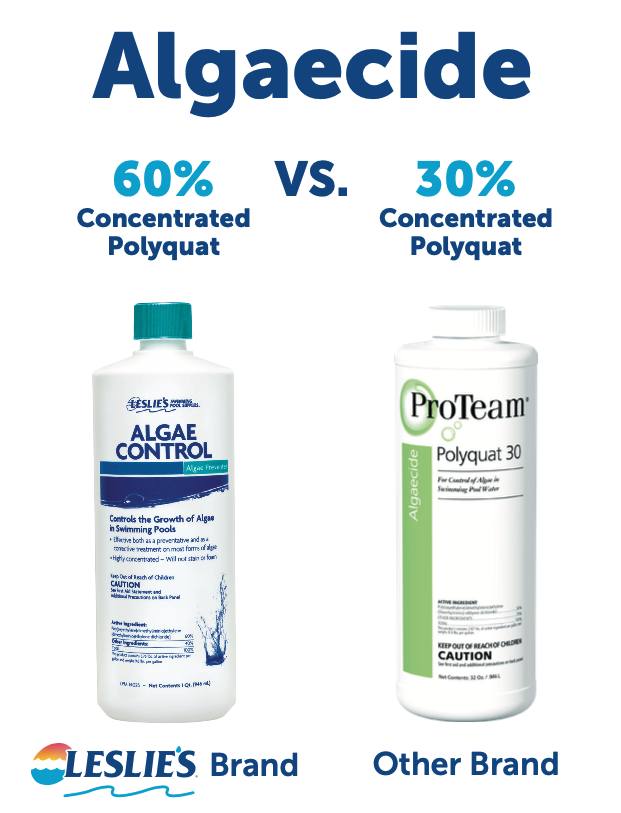
As a pool owner, you know the value of uninterrupted swim time. When you’re faced with issues like cloudy water, an algae bloom, itchy or irritating water conditions, or other water quality problems, it can keep swimmers out of the pool for days on end. And let’s not forget that these issues cost money to resolve with additional chemical applications, or can lead to costly pool damages. When it comes to pool care, it’s always cheaper to maintain a properly balanced and sanitized pool than to correct an issue caused by infrequent water treatments or using low-quality chemicals.
Using pool chemicals with the highest percentage of active ingredients ensures you can address chemistry imbalances or water quality problems quickly and effectively — and with less product. Think of it this way. To kill algae, would you rather use pool shock that adds the highest amount of Free Available Chlorine? Or use a lesser quality product that adds less sanitizer to the water? And wouldn’t you rather use a potent algaecide to finish knocking down the algae bloom, versus a weaker algaecide diluted by fillers?
Lower quality chemicals may still get the job done ... eventually. But you’ll often use more product to achieve the same effect as a higher quality chemical. In some cases, you may even use twice as much of the chemical if you go the cheaper route. What may seem like a better value during checkout can actually end up costing more money by the time you finish treating the water. And again, the inclusion of these fillers and additives will only drive your TDS level higher — an effect multiplied by the increased dosage required to treat the pool.
Use Only the Best Chemicals for Your Pool
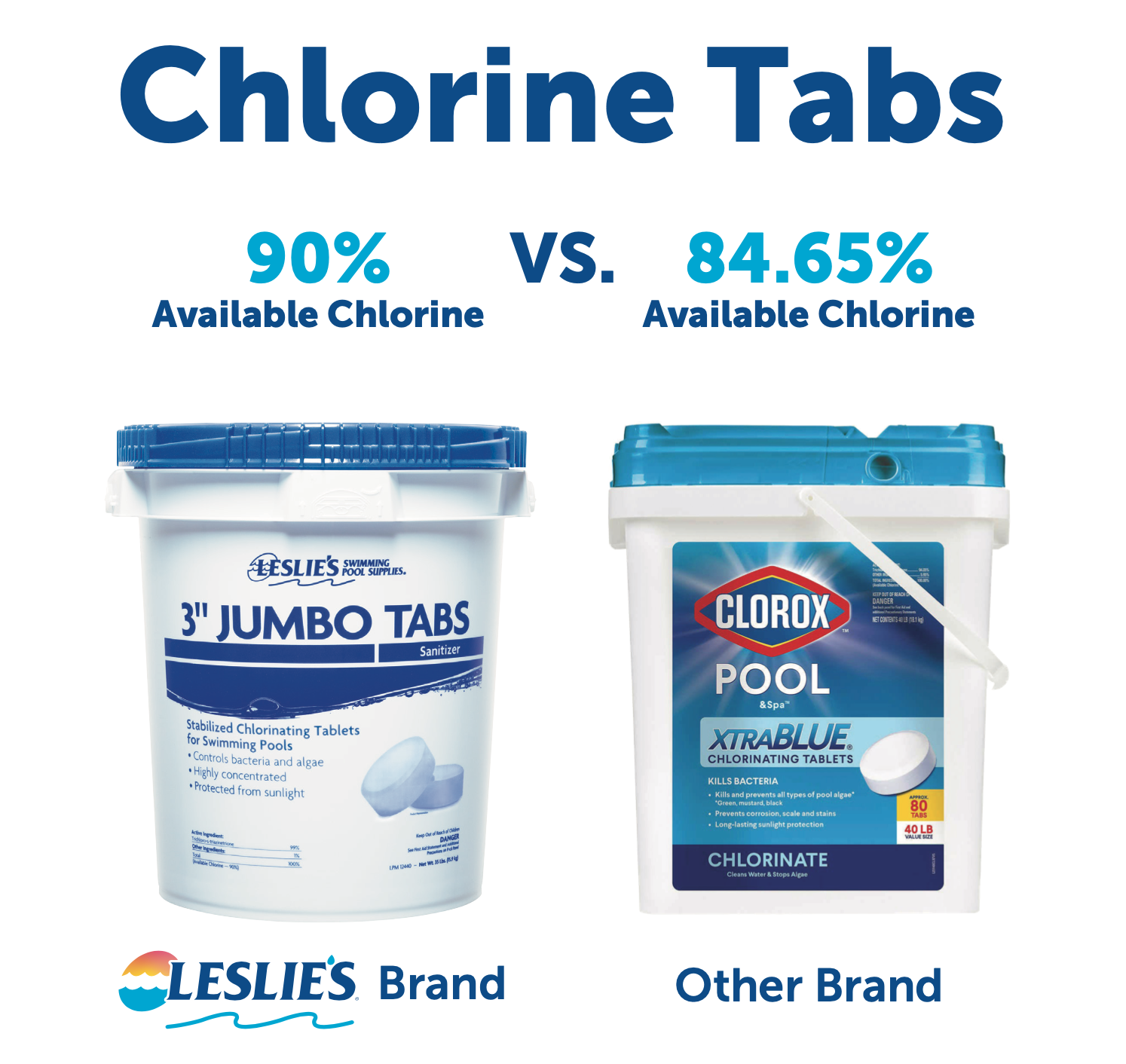
The benefits of using quality chemicals in your pool cannot be overstated. Using the most potent chemicals allows pool owners to treat the water effectively from the very beginning.
Pool chemicals made from the purest ingredients offer the highest treatment efficacy. Plus, the lack of fillers and additives makes it easier to maintain a clean, safe, and beautiful swimming pool. Lower quality chemicals may offer more savings up front. However, you’ll often end up paying more in the long run. Low-quality chemicals may require repeated chemical applications, lead to costly pool repairs, or cause ongoing water quality issues.
When you buy your pool chemicals from Leslie’s, you shop with confidence. You'll always know you’re buying the purest products and with the highest percentage of active ingredients available on the market. And with Leslie’s Price Match Promise, you'll always get the best prices on all your pool essentials. Investing in the best, highest quality pool chemicals is a small price to pay for the peace of mind and enjoyment that comes with having a safe and inviting swimming pool.